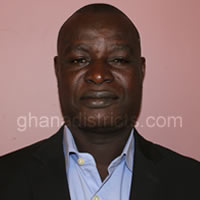List Of Projects
More Planned Projects for 2005/2006, says DPO
The Karaga District Planning Officer (DPO) Mr. Abdul-Karim Adam has said that the District Assembly is poised for more action all fronts. He said three more staff bungalows and two 10-seater KVIP toilets will all be completed within the Ist period. The Karaga health Centre according to the District Planning Officer will also be renovated. Mr. Abdul-Karim Adam added that three 3-unit classroom blocks will also be completed before the end of this year.
All above projects will be funded with the Assembly’s share of the Common Fund, The District Planning Officer added that, the Assembly will set aside 29% of its DACF allocation of which it is yet to receive as a resolving fund for productivity Improvement and Income Generation, Community Initiated Projects, the District Education Fund, support for Nursing Trainees and HIV/AIDS and Malaria programmes.
The DPO totd KAARAGA NEWS that all the planned projects will be implemented without delay due to their importance both to the people and the Assembly. With the construction of the KVIPs, Mr. Adam expressed the hope that people in the beneficiary communities will put a stop to the habit of defecating in the open, a practice he said contributes to the possible outbreak of cholera and other diseases. He said construction of the three new school clocks will also encourage enrollment in school.
CIDA To Rescue Of Karaga District
The Canadian International Development Agency (CIDA), the Canadian Government funded body working to promote Good Governance and support to alleviate the suffering of mostly developing countries, through the provision of budgetary support is undoubtedly making tremendous impact on the lives of the people.
The CIDA is funding the construction of four very important infrastructural projects in the district under its District Wide Assistance Project (DWAP) programme.
The projects which are still on-going are the construction of a Police Quarters in Karaga, construction of two nurses quarters, one each in Karaga and Zandua and the construction of a post office. All projects are about eighty-percent complete. Four additional projects under the same programme will be executed during the course of this year.
The intended projects include the construction of two CHPS compounds, one each at Sandua and Binloli and the construction of a Nurses quarters at Pishigu to ease the suffering of Health personnel there. A new 3-unit classroom block will also be constructed at Namnang under the same programme this year.
According to the District Planning Officer Mr. Abdul-Karim Adam, Sandua and Binloli are communities in the remotest parts of the District and as such the construction of the CHP compounds there is in line with Government’s Policy of ensuring health for all by bring such facilities to the door steps of the people.
He said the District Assembly attaches great importance to the health needs of the people and will therefore ensure the early completion of the facilities to alleviate the suffering of the people. On the construction of the new school block at Nannang, Mr. Adam said the Karaga District Assembly is duty bound to ensure that pupils learn in an atmosphere of peace and tranquility through the provision of decent and safe school infrastructure to achieve that goal.
He commended the CIDA for the assistance and expressed the hope that more assistance shall be forthcoming for the benefit of the people. He said the District Assembly’s planning and Co-ordinating Unit (DPCU) and the Works Unit will monitor and supervise to ensure quality work by contractors who will be engaged to execute the projects.
Assembly Members Sensitised On NORPREP:
Assembly members of the Karaga District Assembly have been sensitized on the implementation of the Northern Regional Poverty Reduction Programme (NORPREP) in the District.
The programme, which is a collaboration between the Government of Ghana and the International fund for Agricultural Development (IFAD) seeks to improve livelihoods and living conditions of poor communities with particular focus on women and other vulnerable groups.
The programme hopes to achieve this through deepening and broadening of rural services in communities, and individual self help capacities. Workshop objectives included the development of an action plan to build the capacities of decentalised government departments, civil society groups and community based organisations to better respond to the needs of the poorest strata of the population.
Throwing more light on the programme, the District Planning Officer, Mr. Abdul-Karim Adam said funds have already been allocated to the District Assembly to assist it in the preparation of a medium Term Development Plan (MTDP) which also resulted in the additional drawing up of Community and Area Council Action Plans.
Mr. Adam said the programme will be under the direct supervision of the District planning and Co-odinting Unit (DPCU) Speaking at the opening of the workshop, the DCE, Baba Wahab said Government in collaboration with other development partners and friends will continue to put in place interventions such as the NORPREP programme to improve upon the living conditions of the people particularly those dwelling in the rural areas.
He appealed to the Assembly members to work hard to justify the confidence reposed in them by the people in their respective areas by being worthy ambassadors. He said the people who elected them were watching and monitoring their performance with keen interest and it therefore behoves on all of them to live-up to expectation.
According to the DCE Assembly members play an important role in the overall development of the district and urged them to translate all what they have learnt at the workshop into practice for the benefit of the people.
More Feeder Roads to be Rehabilitated
A number of feeder roads across the length and breath of the District have been earmarked for rehabilitation this year with financial support from the Danish Government under the Transport Sector Programme Support two (TSPSII) Some of the feeder roads to be rehabilitated include the Kuduli junction to Komoayili, Gaa to Tamaligu junction and Sung to Tamaligu among others.
There is another significant component of the TSPS II. The capacities of core Assembly staff and those of the Area Councils will also be built to enable them function efficiently and effectively. Speaking to KARAGA NEWs recently, the District Planning Officer, Abdul-Karim Adam said the bad state of most feeder roads in the District was hindering the easy and smooth movement of farm produce and the travelling public to the marketing centres and to the communities.
"The rehabilitation of the roads will therefore be a big relief to the people of Karaga District particularly farmers and traders", he added. He said the rehabilitation of the roads will ensure safety on the roads even though the district has no frightening records of motor accidents. On the capacity building component of the support, Mr. Adam said it will hopefully equip them with the necessary skills and techniques to discharge their duties with the best of their abilities.
He said he was particularly happy about the extension of the facility to staff of the area councils saying it will greatly impact positively on their operations. He said the complete operationalisation of the area councils in the District is one of the top priorities of the office of the District Chief Executive.
Monitoring And Evaluation
It is extremely important to institute measures to keep track of the Implementation and Management of Community/Town Area Council and the District Assembly initiatives. This ensures that activities are implemented on time and with the required level of efficiency. It is in the light of this that monitoring and evaluation of this plan is indispensable.
The objectives for monitoring include
- To ascertain whether or not activities are on track and take corrective measures where possible.
- Identify successful interventions for replication in other areas of the district.
- Obtain periodic data for further planning.
- Promote co-ordination and balance in service provision and utilization.
- Motivate as well as strengthen the capacity of the various actors such as government departments/agencies, N’GOs, CBOs. FBOs and the private sector in the collection and utilization of data to improve on service delivery.
Physical Project
A monitoring team is set up according to the guidelines given by the NDPC to monitor execution of physical projects at the district level. The District already has its monitoring team in place. It consists of:
- District Coordinating Director
- District Planning Officer
- District Engineer
- District Budget Officer
- District Gender Desk Officer
- District Finance Officer
This committee is to assist the District to monitor implementation of programmes and activities of the plan.
Since monitoring aims at assessing progress of work and filling the gaps rather than faultfinding mission, the exercise will be undertaken with the active participation of the various actors.
Reporting on Monitoring Activities
On quarterly basis, the KDA Team will put together a report on progress of implementation of activities for circulation to the District Chief Executive and other stakeholders. Copies will be sent to:
- Regional Coordinating Council/ RM&E Unit
- Ministry of local government and rural development
- National development pbmnim1 commission
- Project Financiers.
Mid - Year Review
Apart from the periodic monitoring activity, there shall also be a mid-year review of the annual work plan to ascertain:
- The progress made in implementing the year’s work plan and budget.
- Status of implementation of programmes, projects and activities.
- The extent of achievement of indicators in the plan and budget.
- Outstanding activities and their continued relevance to area and district development
- Identify programmes, projects that can be rolled over to the ensuing year.
Development Programmes
A midterm evaluation will be carried out in 2007 and the result and recommendations discussed at a stakeholder Workshop before the end of the year. This is expected to ensure that the outputs/inputs achieved are in line with the Goal and Objectives of the DA and for that matter the goals of the GPRS II Indicators for evaluation will be.
- The achievement of project objectives/target
- Cost effectiveness and efficiency of projects/programmes
- Accessibility of output to beneficiaries
- The number of beneficiaries.
Conclusion
The purpose of this plan is to provide an overall framework for development in the District. It was prepared with reference to development aspirations of Ghana’s Growth and Poverty Reduction Strategy (GPRS II). It therefore supports national development agenda. The plan is flexible and allows changes, which may occur, or events, which were unforeseen during the plan preparation period.
Date Created : 12/19/2017 8:47:14 AM





 facebook
facebook twitter
twitter Youtube
Youtube TOLL FREE 0800 430 430
TOLL FREE 0800 430 430 +233 593 831 280
+233 593 831 280 GPS: GE-231-4383
GPS: GE-231-4383 info@ghanadistricts.com
info@ghanadistricts.com Box GP1044, Accra, Ghana
Box GP1044, Accra, Ghana